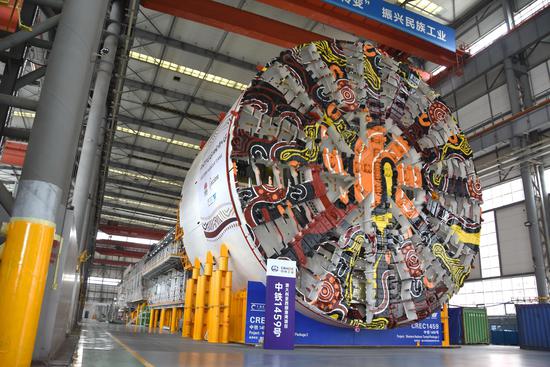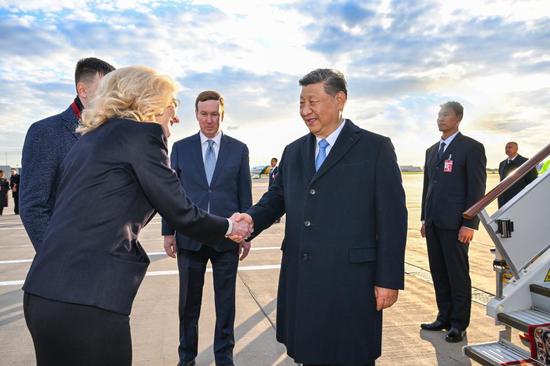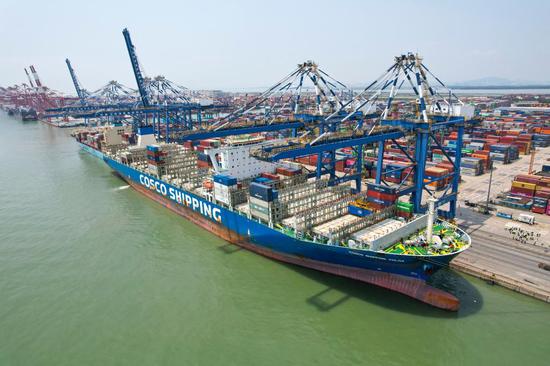(ECNS) — Chinese respondents demonstrated significantly higher trust in and acceptance of artificial intelligence (AI) than the global average, according to a recent international survey.
The Trust, Attitudes and Use of Artificial Intelligence: A global study 2025, jointly conducted by scholars including Professor Nicole Gillespie from the University of Melbourne and teams from KPMG, surveyed 48,000 people across 47 countries and regions between November 2024 and January 2025.
"Given AI's transformative impact on society, workplaces, education, and the economy, incorporating public voices into decision-making and governance has never been more critical," Gillespie said.
The report highlights that AI has ushered workplaces worldwide into a new era of human-machine collaboration. Globally, 58% of respondents said they proactively use AI tools, with 31% using them weekly or even daily. In China, the figures are notably higher, with 93% of respondents reporting workplace AI use and 50% indicating frequent application — showing a clear leading edge.
"Today, using AI is becoming as indispensable and accessible as water and electricity," said Paul Lau, chairman of KPMG Asia Pacific and China. "The high level of trust and acceptance of AI among Chinese respondents reflects the country's solid foundation for advanced AI development, while also raising the bar for secure and responsible governance."
China's most recent government work report called for continued implementation of the "AI Plus" initiative, while various local authorities have prioritized the safe, compliant and trustworthy use of large AI models.
Despite growing adoption, the report notes challenges in corporate governance, including a lack of adequate training and unclear guidelines. Globally, only 47% of respondents have received formal AI training, and just 40% reported that their organizations have established policies for generative AI use.
In contrast, China stands out in AI capacity building. About 64% of Chinese respondents said they have completed AI literacy training, while 69% are clearly aware of their organizations' AI usage policies.
According to Gillespie, the higher trust and adoption rates in emerging economies may be attributed to the relatively greater benefits AI brings to these populations and the growing importance of the technology in their development strategies.
(By Zhao Li)


















































 京公網(wǎng)安備 11010202009201號(hào)
京公網(wǎng)安備 11010202009201號(hào)